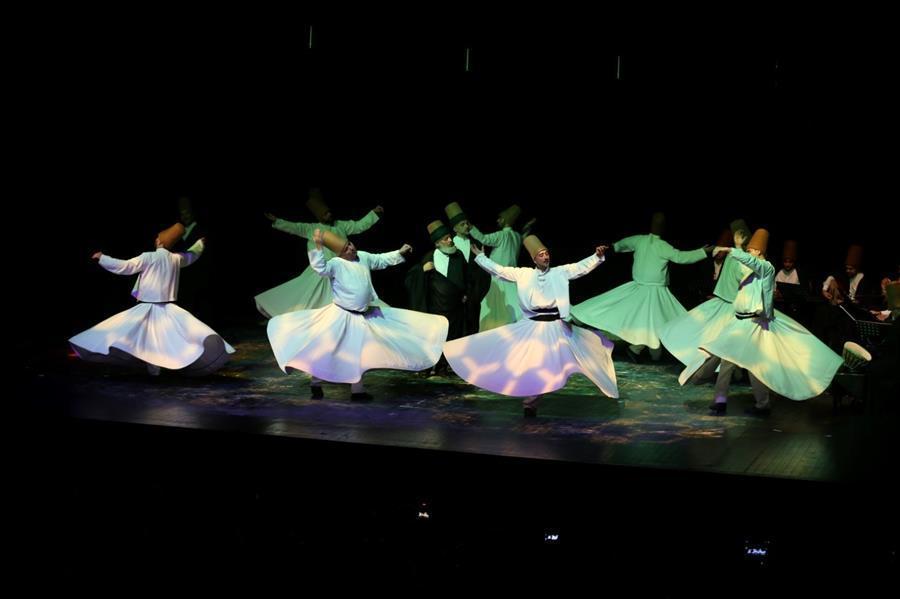
Mevlâna Jalaluddin Rumi, a man of thought and a Sufi poet known all over the world for his teachings, has been commemorated on the 748th anniversary of his death with events held throughout the country.
A Şeb-i Arus ceremony, known as “the wedding night” in Persian, was held in the Galata Mawlawi House in Istanbul’s Beyoğlu district on Dec. 16, featuring astonishing whirling dervishes as well as vocal performances.
Attending the event with local officials and dozens of guests, Turkey’s Culture and Tourism Minister Mehmet Nuri Ersoy said that he remembered Rumi with mercy on the 748th anniversary of his death.
He said that Rumi’s legacy has become a guide that spreads all over the world, and that the fire of this age, ravaged by oppression, injustice and wars, can be extinguished by heeding the call for peace and brotherhood of spiritual leaders like him and Yunus Emre.
Noting that there are very few people in the world who have extensive literature about Rumi, Ersoy emphasized that this wealth of resources offers a great opportunity to understand Rumi in the most accurate way.
“If we really have a complaint about the current state of the world; if we desire the Earth to be a fairer, more tolerant and livable place, then we must not forget that we have to understand the universal messages of Rumi and Yunus [Emre] and guide ourselves,” the minister noted.
The event ended with the sema and vocal performances of the whirling dervishes.
Described as “experiencing perpetual life in mortality, being familiar with the mysteries of Allah without a messenger and meeting Allah while embracing love,” the sema known by the believers as a Sufi ritual that can touch its audience with its visual features and aesthetics.
In the Central Anatolian province of Konya, where Rumi lived for a while and eventually died, the poet was remembered with a series of commemoration events organized by local authorities.
The whirling dervishes spun around as they recited the name of Allah with their hearts and mouths while performing the ritual.
Born into in a Turkic family in present-day Afghanistan in 1207, Rumi is one of the most widely read philosophers across the world, whose teachings have transcended boundaries of race, color and religion.
With his book Masnavi, which was penned after he lost his close friend, a wandering dervish called Shams Tabrizi, Rumi focused on tolerance and divine love, building a religious legacy which has a worldwide influence.
The Masnavi poem, with its more than 50,000 verses, is considered the most influential work on Sufism, and has been translated into 26 languages, including Turkish, English, French, Spanish and Arabic, from its original Persian.